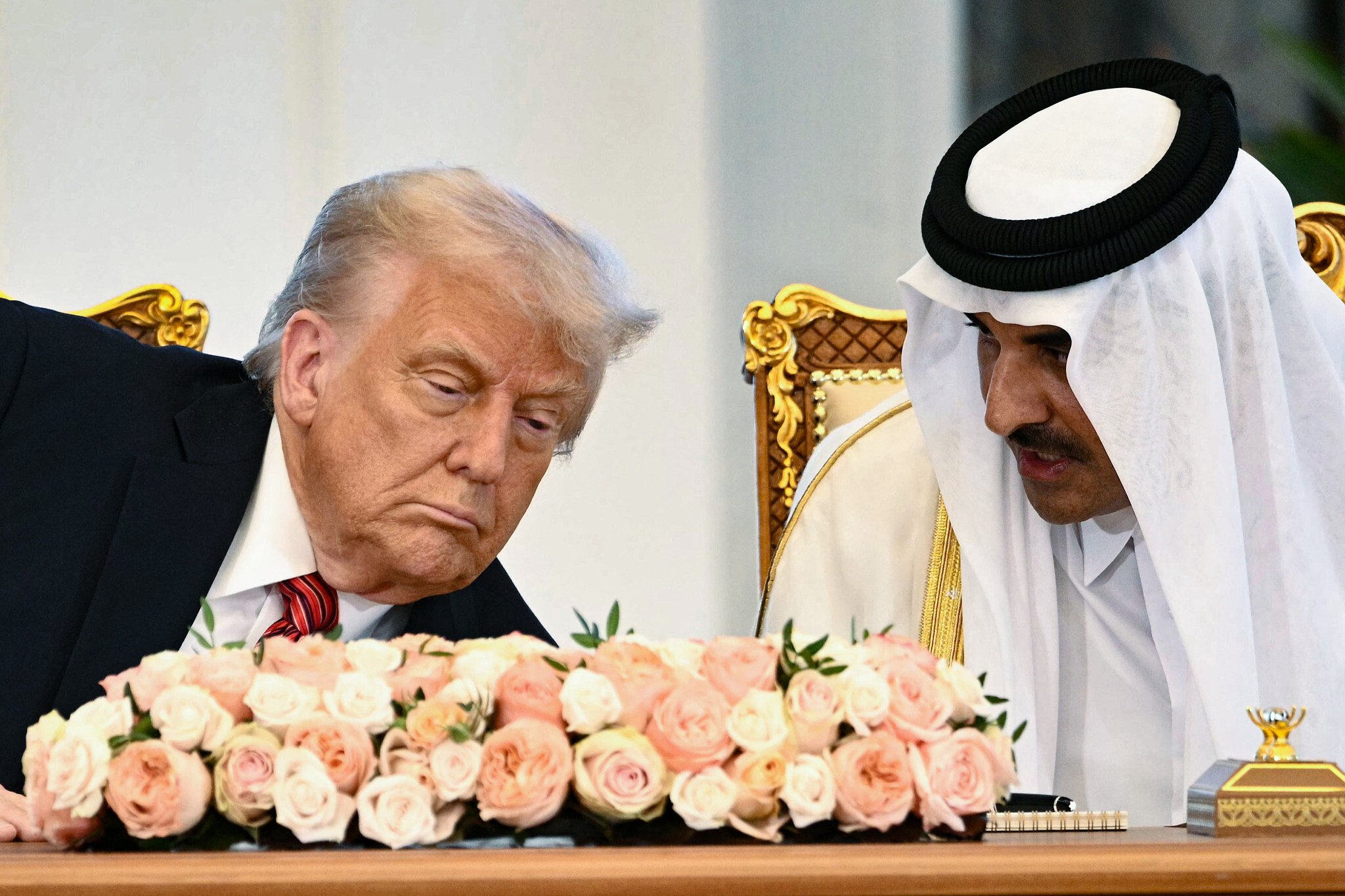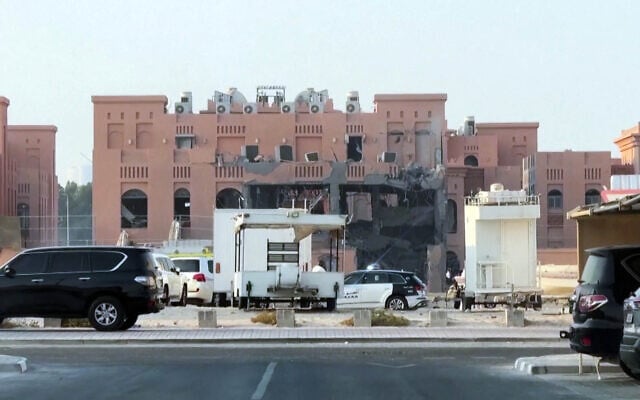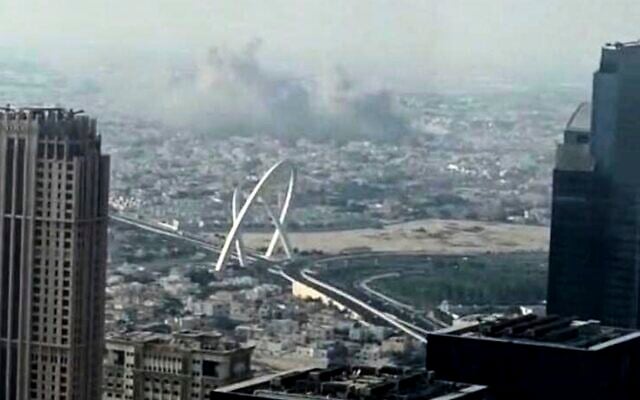


Israel found itself on the receiving end of Washington’s anger on Tuesday, after launching an airstrike in the Qatari capital, where senior members of Hamas were meeting to discuss a new ceasefire proposal.
While the White House was careful to stress that it viewed eliminating Hamas as a worthy goal, it made clear it was deeply unhappy with Israel over Tuesday’s strike.
The administration’s position was set out by White House Press Secretary Karoline Leavitt, who said that US President Donald Trump had been informed of Israel’s plans ahead of time “by the US military,” rather than by Israel, and had told the Qataris about it rather than have them taken by surprise.
Qatar, which hosts much of Hamas’s political leadership, is a key US ally and hosts the largest American airbase in the Middle East.
Trump also spoke to Qatari leaders, as well as Prime Minister Benjamin Netanyahu, in the aftermath of the attack, Leavitt said.
Reading from a statement, she criticized Israel, saying, “Unilaterally bombing inside Qatar, a sovereign nation and close ally of the United States that is working very hard and bravely taking risks with us to broker peace, does not advance Israel’s or America’s goals.”
However, Leavitt stressed, “eliminating Hamas, who have profited off the misery of those living in Gaza, is a worthy goal.”
She said Trump, upon learning of the imminent strike, immediately told US special envoy for the Middle East Steve Witkoff to inform the Qataris of the “impending attack, which he did.”
Leavitt reiterated that the US president “views Qatar as a strong ally and friend of the United States and feels very badly about the location of this attack.”
“President Trump wants all of the hostages in Gaza and the bodies of the dead released,” she said, “and this war to end now.”
She said Trump had spoken to Netanyahu after the attack, and that the Israeli premier had told him that he “wants to make peace, and quickly.”
Trump believes “this unfortunate incident could serve as an opportunity for peace,” added Leavitt, and said he had assured the Qatari prime minister and emir in its aftermath that “such a thing will not happen again on their soil.”
The attack was met with a steady flow of condemnations throughout the afternoon and evening, both from across the region and from Israel’s allies in Europe.
The strikes “violate Qatar’s sovereignty and risk further escalation across the region,” wrote British Prime Minister Keir Starmer on X, urging “an immediate ceasefire, the release of hostages, and a huge surge in aid into Gaza.”
French President Emmanuel Macron also took to X, declaring the strikes to be “unacceptable, whatever the reason.”
“Under no circumstances should the war spread throughout the region,” he added.
Spain, which has seen its relationship with Israel deteriorate in recent days, also waded into the fray.
In a statement issued by its foreign ministry, Madrid declared that the attacks violated “Qatari territorial sovereignty” in a “flagrant breach of international law,” and called for “an immediate end to violence and a return to diplomatic negotiations.”
Foreign Minister Gideon Sa’ar hit back at Spain, retorting on X that, after Spanish Prime Minister Pedro Sanchez announced nine punitive measures against Israel for its wartime conduct in Gaza, “Yesterday – Hamas praised Spain’s decisions against Israel. Today – Spain condemned Israel’s strike against Hamas terrorist leaders.”
“This is how true partnership looks like,” Sa’ar quipped.
Germany, Israel’s closest ally bar the US, was disapproving, with Foreign Minister Johann Wadephul calling the attack “unacceptable.”
“Israel’s attack on Doha not only violates Qatar’s territorial sovereignty, but also jeopardizes all of our efforts to secure the release of the hostages,” he said in a statement.
“Qatar is playing a crucial role in the efforts to achieve a ceasefire and secure the release of the hostages,” Wadephul said. “I urgently call for everything to be done now to finally bring about a ceasefire and allow the hostages to return to their families.”
Like the US, he acknowledged that “the current escalation” was a result of Hamas’s “abhorrent terrorist attack on Israel on October 7, 2023.”
The United Nations and the European Union also issued similarly strongly worded statements opposing Israel’s actions.
The strikes, said UN Secretary General Antonio Guterres, were “a flagrant violation of sovereignty and the territorial integrity of Qatar.”
“All parties must work towards achieving a permanent ceasefire, not destroying it,” Guterres told reporters.
“Today’s airstrike by Israel against Hamas leaders in Doha breaches international law and Qatar’s territorial integrity, and risks a further escalation of violence in the region,” the EU said.
The airstrike targeted all of Hamas’s senior leadership who were gathered in Doha to discuss a US ceasefire and hostage deal proposal, including the terror group’s leader Khalil al-Hayya.
Israel was said to be “optimistic” over the results of the strike. Hamas denied that it was successful, however, saying that none of the five people killed were senior officials in the group.
Agencies and Times of Israel staff contributed to this report.




